In this series by Christopher James we investigate the 'Gay Best Friend' trope in movies.
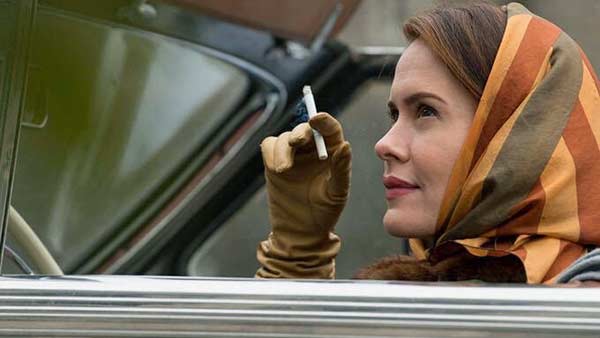
In honor of "Carol Day" (December 21st, the day Therese went to Carol’s house), the choice for Gay Best Friend was obvious! No Holiday Movie Watchlist is complete without a viewing of Carol, Todd Haynes’ romance masterpiece. A single sultry glance from Cate Blanchett’s Carol could keep you warm all winter long. As much as we’re transfixed by her and her love for Therese Belivet (Rooney Mara), this article isn’t about them. In a sea full of lesbians in this film, there’s only one that's on our hearts and minds for this column.
Abby Gerhard (Sarah Paulson) is perhaps the greatest and most fully realized examples of a gay best friend...
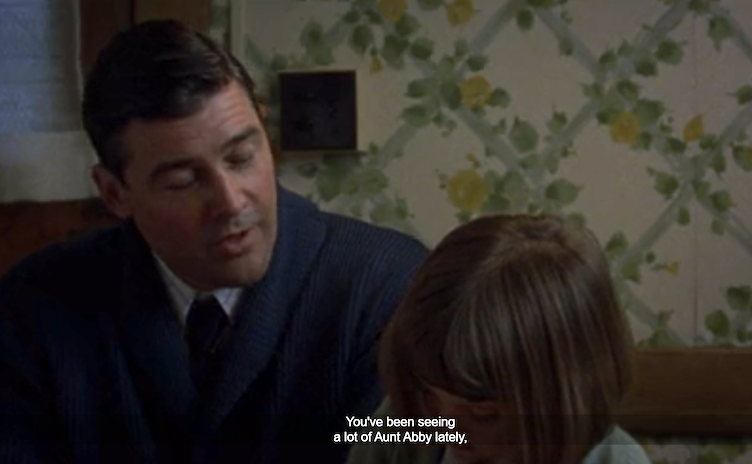 Abby is mentioned first seventeen minutes into the movie by Harge, the best villain name in recent memory.
Abby is mentioned first seventeen minutes into the movie by Harge, the best villain name in recent memory.
Like all icons, we hear about Abby before we actually see Abby. She’s mentioned by Carol’s soon-to-be-ex-husband Harge Aird (Kyle Chandler), who sneers when he asks their daughter Rindy (Sadie and Kennedy Heim) if she’s been seeing a lot of “Aunt Abby.” Abby is no blood aunt to Rindy. Instead, she’s Rindy’s godmother and close confidant of Carol. Chandler does a good job of only slightly coding what he feels his wife’s intentions are with Abby. He knows they’ve been romantically linked in the past, but vocalizing it would only serve to make him feel more emasculated.
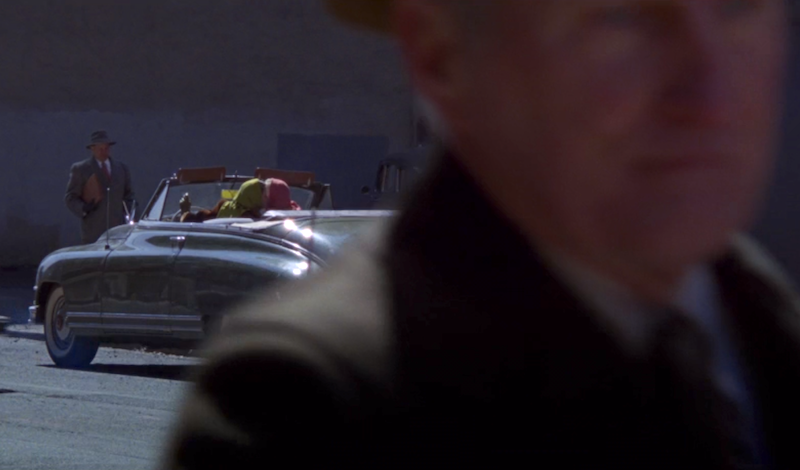 Abby picks Carol up from her date with Therese. It's the first time we see her, 23 minutes into the film.
Abby picks Carol up from her date with Therese. It's the first time we see her, 23 minutes into the film.
We first meet Abby as she drives Carol home from her date with Therese. The conversation mostly revolves around Carol’s attendance at Harge’s mother’s party. Abby makes the observation that if Carol doesn’t show up, Abby will be blamed. She knows her place in this triangle is a tenuous one. She needs to be as invisible as possible to Harge in order to keep spending time with Carol. Once logistics are over, she asks Carol about Therese. She has genuine interest because she wants her friend to be happy.
A lesser movie or performer would’ve coded Abby as a jealous lover. Especially in films set in the more repressive 50s, there’s a tendency for queer characters to be lovelorn, suffering or irascible. The world has shunned them, so they have this chip on their shoulder. While this works in certain pieces (The Boys in the Band is all about gay men comparing their emotional wounds), it can often be a narrative crutch mining only cheap drama. Screenwriter Phyllis Nagy makes it clear that Abby and Carol were romantically linked in the past but over the decades, their relationship has evolved. Their friendship is deeper than any physical connection they may have shared.
Abby Gerhard: I got my eye on this redhead who owns a steak house outside of Paramus. I'm talking serious 'Rita Hayworth' redhead.
Carol Aird: Really? You think you got what it takes to handle a redhead?
There’s a comfort in this platonic relationship. They get to be each other’s rock, where no secrets are kept. It’s heartening to watch the women delightedly describe their paramours and sex lives, especially in this time of oppression. This is what separates Carol from other Oscar-nominated gay dramas. It subverts what you expect from a 50s set lesbian romance. It’s not focused on showing its characters repressed or oppressed. Instead, we see these ladies forge these powerful connections in the broad daylight, unbeknownst to the men around them. Abby and Carol know that they’re all each other has in terms of this level of unbridled friendship. This is why they don’t re-pick up their relationship. They can find other women to enjoy or fall in love with. However, they can’t find anyone else that will be able to replicate their friendship.
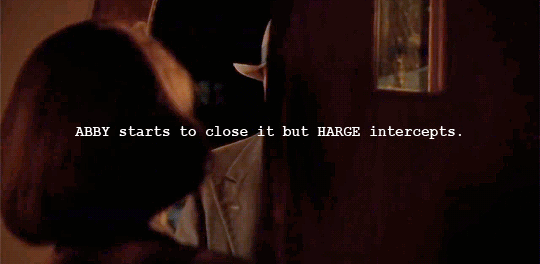
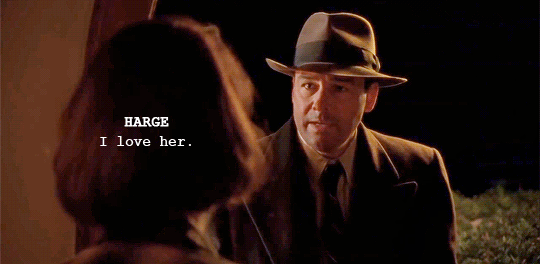
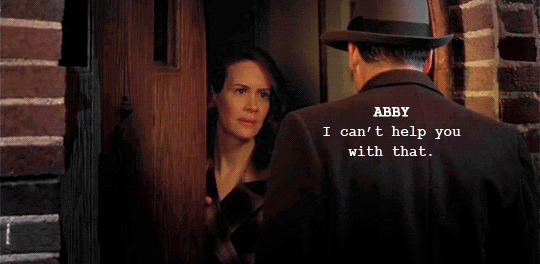
In just a couple short scenes, we have a full picture of this loving and strong friendship between Carol and Abby. This foundation allows us to fully appreciate Abby’s big moment in the film. After receiving a “morality clause” from Harge forbidding Carol from seeing Rindy, Carol takes a romantic road trip with Therese. In the meantime, Harge has gone looking for Carol, only to find her gone. He goes straight to Abby’s house in the middle of the night, looking for Carol. Anger has gotten the better of Harge and made him so sure and so flustered. Abby knows Carol is with Therese, but isn’t about to give Harge any information. She tries repeatedly to slam the door in his face, but he continually uses his strength to keep it open.
The real show of strength is Abby’s indignation towards Harge. “You’ve got some fucking nerve ordering me around” she almost laughs in his face. He’s trying to invade her space with brute force, but what he’s looking for isn’t even there. In trying to force Carol into his life, he has no idea of what’s happening in her own interior life. He blames all their problems on Abby, when she is merely one woman and a confidant. Carol’s marital dissatisfaction is much bigger than just being friends with Abby.
In a movie full of incredible line readings, Paulson’s final death blow in this scene takes the cake. Harge tries, in vain, to profess his love for Carol. “I can’t help you with that,” Abby says as she closes the door on him. His feelings are of no concern for her, especially after the morality clause he brought up could prevent Carol from ever seeing Rindy again. This is what a best friend does. They eviscerate the scumbag husband you’re divorcing.
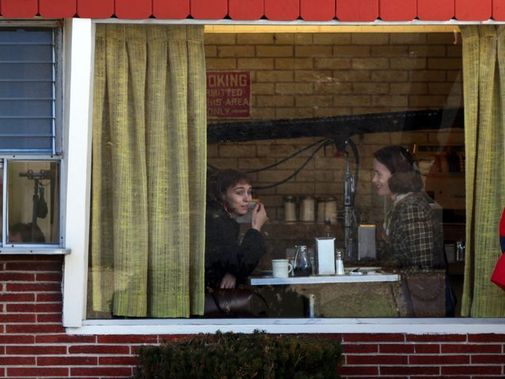 There's no easy way to say "I'm sorry my friend left you alone in Chicago to deal with her custody battle."
There's no easy way to say "I'm sorry my friend left you alone in Chicago to deal with her custody battle."
Therese Belivet: Why do you hate me? I haven't done anything to you.
Abby Gerhard: You really think I've flown halfway across the country to drive you back East because I hate you and want to see you suffer?
Therese Belivet: It's for Carol. Not for me.
Abby Gerhard: That is...
[stops herself and lights a cigarette]
Therese Belivet: With you and Carol, what happened?
Abby Gerhard: It's completely different. I've known Carol since I was ten years old.
Carol and Therese’s romantic vacation is cut short when a private investigator tapes them having sex, using it as evidence in Carol’s custody case. Carol flies back to New York in a hurry. Similarly, Abby has flown out to Chicago to pick up Therese and drive her back. Scorned and saddened, Therese wants to believe that Abby hates her and is yet another force keeping them apart. The truth is much more complicated than that.
Abby details how Carol and her knew each other at age 10 and had a relationship early on while growing up. What developed out of it was a stronger friendship than anything else that could’ve come from their relationship. Therese isn’t wrong that Abby is driving her back as a favor to Carol. However, this doesn’t mean there’s any lingering resentment or pining that is going on from Abby’s part.
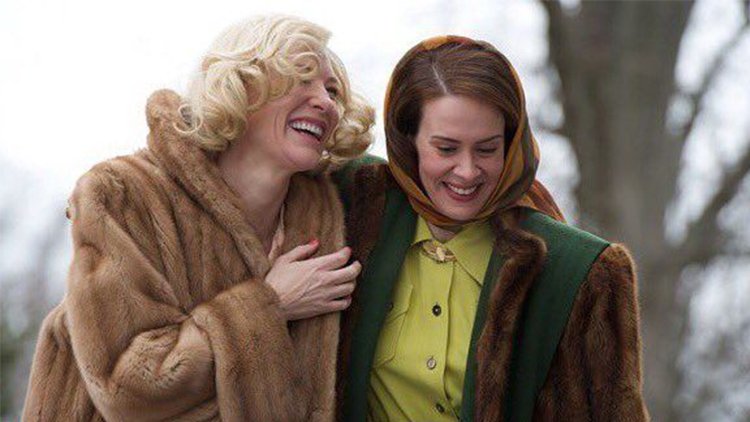 Who wouldn't want to be friends/in love with Cate Blanchett and Sarah Paulson?Abby is a great example of what happens when a queer writer and queer actor collaborate on a project. The character feels rich and fleshed out within moments, conveying decades of desire, camaraderie and friendship. This character also represents an interesting duality that more frequently exists in healthy queer friendships than straight ones. People can transition from romantic relationships to platonic friendships. Even when the embers of desire still crackle between two people, they can come together primarily as friends, rather than lovers. Abby adds incredible texture to the world within Carol, while also displaying a rich interior life as a single lesbian in 1950s New York. This is how you include a gay best friend in your film!
Who wouldn't want to be friends/in love with Cate Blanchett and Sarah Paulson?Abby is a great example of what happens when a queer writer and queer actor collaborate on a project. The character feels rich and fleshed out within moments, conveying decades of desire, camaraderie and friendship. This character also represents an interesting duality that more frequently exists in healthy queer friendships than straight ones. People can transition from romantic relationships to platonic friendships. Even when the embers of desire still crackle between two people, they can come together primarily as friends, rather than lovers. Abby adds incredible texture to the world within Carol, while also displaying a rich interior life as a single lesbian in 1950s New York. This is how you include a gay best friend in your film!
Previously in Gay Best Friend
-
Wallace Wells (Kieran Culkin) in Scott Pilgrim vs the World (2010)
-
Gareth (Simon Callow) and Matthew (John Hannah) in Four Weddings and a Funeral (1994)
-
George Downs (Rupert Everett) in My Best Friend’s Wedding (1997)
Who is your favorite (or least favorite) example of a “gay best friend” in movies? Let us know in the comments below.